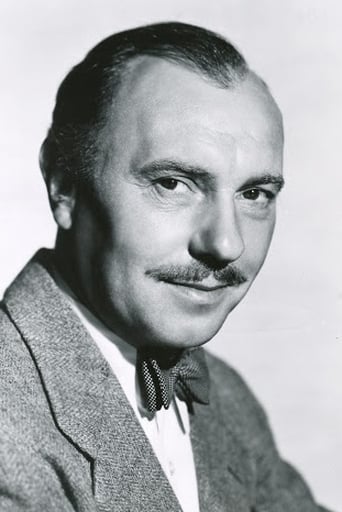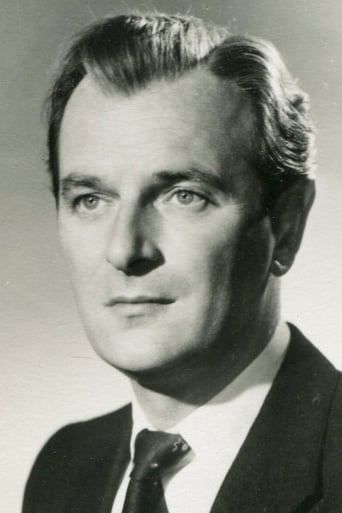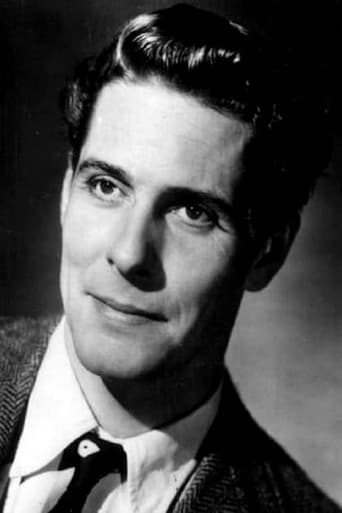Unlimitedia
Sick Product of a Sick System
Chirphymium
It's entirely possible that sending the audience out feeling lousy was intentional
Lidia Draper
Great example of an old-fashioned, pure-at-heart escapist event movie that doesn't pretend to be anything that it's not and has boat loads of fun being its own ludicrous self.
Kinley
This movie feels like it was made purely to piss off people who want good shows
larrysez
Totally made up fantasy about how the sound barrier was initially broken by some English guy. It mashes up the true death of test pilot Geoffrey de Havilland in 1946 with a made-up subsequent crash and a made-up subsequent pioneering blast through the sound barrier, and it was written and filmed more than enough years after Chuck Yeager had really broken the sound barrier (after de Havilland's crash) to be a pretty outrageously and fictitiously an expression of British nationalism.All of the characters are very posh and very English (and of course lily white), with the exception of an irascible Scottish technical genius who may well have been the prototype for "Scotty" in the Star Trek franchise. Just the sort of movie you'd expect from postwar Britain when they thought they'd still be ruling the world for ever and ever, even as the empire was already disintegrating. Pretty good acting, but the characters are all a little too refined, too restrained, and too polite, even as the rather unscrupulous head of the aircraft company in the movie gets a pass on getting test pilots killed in the interest of being the first guy to build a supersonic plane.
petrelet
I remember liking this movie as a child on TV on Saturdays, and I wasn't the only one apparently since it won the BAFTA for best picture. Alas, now that I've searched out the DVD and have looked at it as a 21st-century adult, I regretfully conclude that it hasn't held up well at all. There is still some suspense in the test dives. Of course now that we've seen "The Right Stuff" we know that the sound barrier was not broken over the skies of England by some guy working for a company with a management team of one and a design team of one. (Oops, that's your big spoiler right there: a guy actually breaks the sound barrier in the movie.) We have a lot more appreciation for scientific and engineering progress as a team effort, and we are less likely to demand that for dramatic purposes everything be run by some one businessMan like in an old Heinlein story.But that's not my main problem with the movie. For me, the thing that makes it really hard to watch is the "human drama" side which is precisely the thing which I suppose originally made the film particularly "interesting" back in 1952. It brings in the wives. And it brings them in to educate them, or really to mansplain to them. And the message to them is, "Yes, we understand that your cute little female minds would like to keep your husbands alive, and can't fathom why Progress is so Important that your men want to go and give their lives for it. But it really is, so you should just be supportive and smile through your tears and go home and live at Downton Abbey and raise another generation of sons. Or go shopping!"Yes, it really IS just that gender-laden a film from first to last. You think when you see Ann Todd for the first time in uniform during the war that maybe she will be a role model of some kind, but you catch on quick that WWII was an emergency situation, when women were forced to do unnatural things like work in military offices and drive staff jeeps, but as soon as it's won they should go home and be mommies and raise children. ("SONS!") Right, sons. There's of course a whole literature now on postwar anti-feminist reaction in which this film ought to get a mention. Ann Todd's character is later called upon to be the doofus who knows nothing of sound so that men can explain the whole speed of sound business to her. Despite the fact that her father is an aircraft manufacturing magnate, she has never had a conversation with him about air apparently!There are two ways that Test Pilot Wives react, we find; one of them is to mope around like Ann Todd, trying to nag their husbands into letting someone else do the risky stuff and wondering why it's so important to get a plane to go 800 miles an hour. (Of course it's to beat the Russians, but that isn't driven home in the film, so let's just focus on phrases like "It's just got to be done, that's all".) (She might also wonder why her dad doesn't invest in a wind tunnel or find some way to test the properties of the plane other than just send up a guy to dive at the ground and see what happens.) The other way is to be a proto-Stepford airhead like Dinah Sheridan's character, who provides comic relief by bursting in with fabric samples and not giving her husband a second to tell her about his triumph of the day. (Isn't that just like a woman, after all?)I could go on, but it would be tedious and boring. But, you may say, this movie was a product of its reactionary time and place! So true. So, what are our numbers supposed to represent though? Are they meant to sum up Lean's place in cinema heaven, like in Mark Twain's "Captain Stormalong" where people's lives are judged on the basis of what, in the view of omniscience, they did with what they had? My aims are more limited - I'm just saying how much I, today, here (Chicago), liked the movie and why. And it wasn't pleasant.
lewis-51
This is an impressively made movie from 1952 spanning the years between the end of WW2 and the Sputnik era. In some ways, it is a science fiction movie. It has the right spirit for a classic, "real" sci fi novel or movie, as distinguished from almost all of those produced in the last 25+ years, which are primarily filled with irony, self- deprecating humor, pessimism, decadence, and gratuitous violence. Everyone born since, say, 1965, should see this to get the real spirit of science fiction.As others have posted, it really is fiction. The fact that Chuck Yeager broke the sound barrier in 1947 was kept top-secret for several years. This movie was in the middle of production when the story broke. According to Robert Osborne on TCM, the director and producer considered including a reference to Yeager, but wisely, I think, decided to continue with the original plot and screen play. It is also fictional in the explanation for how to control the plane as it passes Mach 1, but that is a minor point.However, it is also based on fact. The problems and fears about exceeding Mach 1 were very real. Some of the basic characters are clearly modeled on Geoffrey de Havilland, father and son. It would be almost, but not quite, a spoiler to read about them before seeing the movie.The script and acting are excellent. It is very good that they emphasize the tension between the father and daughter. The resolution of that tension is very good indeed.About the only criticism I can make is the choice of the actress to play Susan, the daughter and wife. She seems too old, and in real life, was only seven years younger than her "father." I am very glad that I saw this optimistic, yet realistic, look at the motivation and risks of aeronautic and space exploration, coming from the golden age of British cinema.henry
davep-15
The movie really does capture a sense of time and the tremendous bravery of those involved in the breaking of the sound barrier.The cast is excellent and as usual Denholm Elliot steals every scene he's involved in. I feel this film is under-rated and is typical of much of the good work of British Cinema in the 50's




